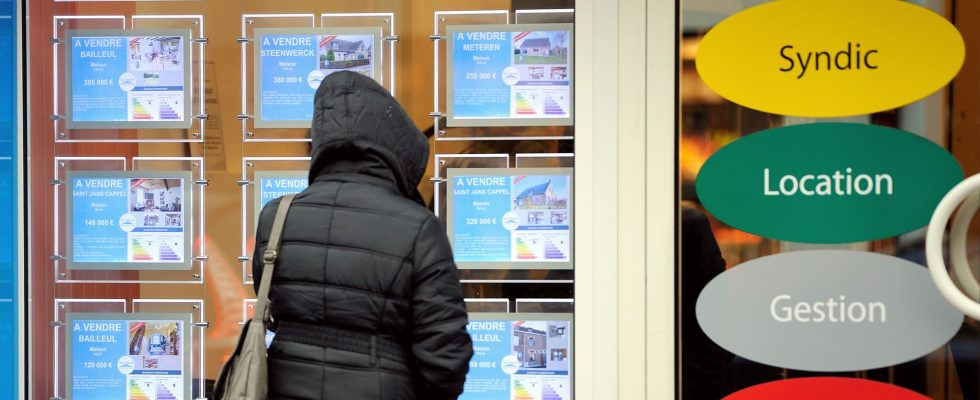“The Roaring Twenties are over, we will move to another real estate paradigm.” The analysis comes from Elodie Frémont, the president of the real estate statistics commission of the Notaries of Greater Paris, after reading the Notaires-Insee index published this Thursday, September 7. This, which is a benchmark for its completeness, shows an increase of 0.5% over one year in prices in France (excluding Mayotte). That is a very clear slowdown since mid-2022. From 6.8% in the second quarter of 2022, the increase has fallen to 6.4%, 4.6%, 2.7% and now 0.5%.
The causes are multiple, but the main one is the soaring interest rates, which have increased the cost of loans, underlines to AFP Elodie Frémont: “From now on, you have to save, or in any case make substantial contributions, so that the credit file can even be instructed, we do not even speak of its success at the exit.”
“It’s the revenge of cash” for those who can afford it, she adds, noting “a small rebound in family loans, friendly loans, and great help from mom and dad thanks to donations.” Inflation, which eats away at the rest of households, also pushes prices down, especially for houses. “When you have one, you need a vehicle, so it affects the price of gasoline, it affects energy consumption and it affects the sale with the energy standards that are now binding, when you are poorly rated, doing renovations and […] an energy audit,” she notes.
Buyers and sellers under pressure
Houses, the prices of which had exploded in 2020, at the end of the confinements, nevertheless remain on the rise throughout the country, with prices increasing by 0.9% over one year. Unlike apartments, whose average price has not changed. And if buyers are under pressure, so are sellers. As prices are falling, those who can withdraw their goods from the market, and “the one we find around our table is the one who finds himself in a financial situation which forces him to sell, or a personal situation which means that he has no choice: divorce, separation or succession”, notes the president of the real estate statistics commission of the Notaries of Greater Paris.
Consequence: the number of transactions, an indicator of market activity and which had reached an all-time high (more than 1.2 million) in 2021, continues to decline rapidly. For the whole of France excluding Mayotte, it stood at one million, a figure still higher than the historical average, nevertheless notes INSEE.
A general drop in prices, already observed by the agency networks, should not be long in coming. “Without a doubt, the decline will accelerate”, judge Thomas Lefebvre, scientific director of Meilleurs Agents. Interest rates have indeed accelerated their rise from the first quarter, when the State has relaxed the conditions for granting. “The purchase becomes less and less financially attractive, because to make your purchase profitable, you have to wait longer and longer,” he notes.
Guillaume Martinaud, president of the Orpi branch network, also points the finger at the housing policy, judging the conditions of access to credit still too restrictive. Several measures are likely to deter real estate investment, he also judges, such as the increase in property tax in many cities, the end of public aid or renovation obligations. “All this does not help to offer more housing on the market”, he squeaks.
